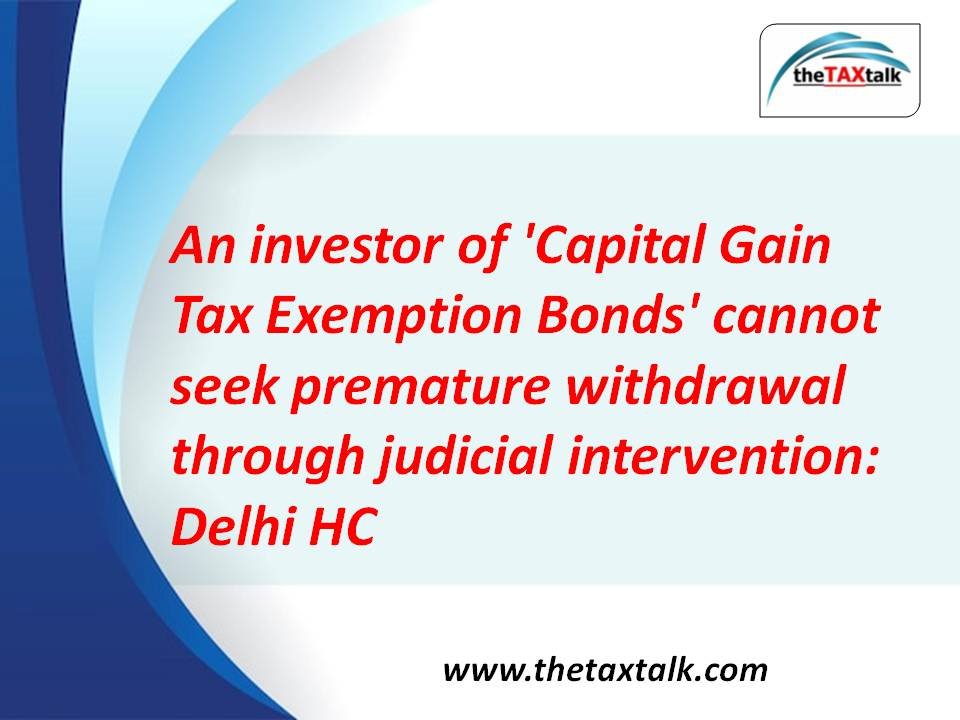![]()
An investor of ‘Capital Gain Tax Exemption Bonds’ cannot seek premature withdrawal through judicial intervention: Delhi HC
Facts:
1. The Petitioner, a practicing Advocate of the High Court, claimed that he was misled into investing in the bond issued by government owned Power Finance Corporation (PFC) following the sale of his residential property.
2. Sec 54 EC of the Income Tax Act stipulates that long-term capital gain on sale of immovable property will not be charged on an assessee if he invests in certain specified bonds (which come with a lock-in period). PFC bond was a Sec 54 EC bond.
3. Petitioner claimed that he sought withdrawal of the bond certificates within a month of being issued and contended that no loss was being caused to the PFC since refund was being sought at initial stage, when even no interest on the bonds had been paid to him.
4. PFC on the other hand argued that there was no procedure in place to allow redemption of the investment before maturity of the bond, i.e. before 5 years.
Hon Delhi HC held as below:
1. The funds raised through the 54EC bonds are in the nature of ‘long term funds borrowing’, where the statutory intent is to support PFC’s financial objectives.
2. This intent, combined with the five year lock-in period, imposes a clear embargo on premature redemption, as it ensures that the investments remain committed to Respondent’s financial stability and to meet the object of the Issue. This lock-in period is not a mere formality but a substantive requirement, integral to the legislative intent behind Section 54EC.
3. This restriction applies regardless of whether the Petitioner has claimed the capital gains exemption or not, and regardless of any willingness on the Petitioner’s part to forgo interest, as these bonds are essentially bound by legislative and contractual rigidity.
4. Thus, an investor of ‘Capital Gain Tax Exemption Bonds’ cannot seek premature withdrawal through judicial intervention.
The copy of the order is as under:
svn07112024cw121962024180023-571346


